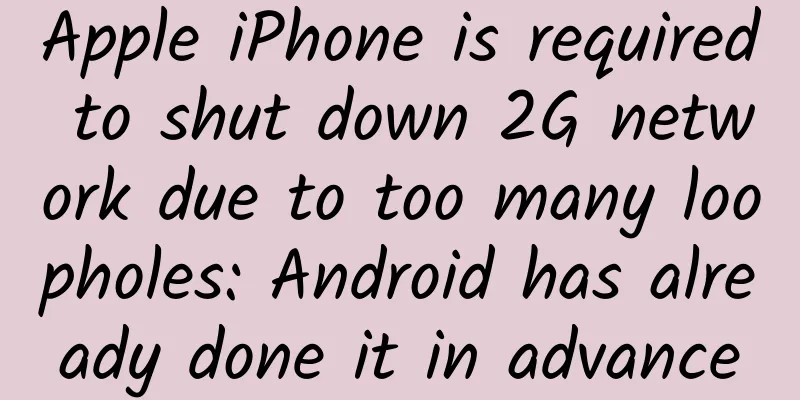Apple iPhone is required to shut down 2G network due to too many loopholes: Android has already done it in advance

|
The GSM 2G network has been around for more than 30 years, and there are still many services that require 2G. However, the network has too many security vulnerabilities. Google has already supported the function of disabling 2G in the Android system. Now the EFF Electronic Frontier Foundation has also asked Apple to learn from Android and allow the iPhone to turn off the 2G network. Google has added a feature switch in Android 12, which allows you to enable or disable the "Allow 2G" feature in the SIM card settings. The EFF Foundation praised Google's approach and asked Apple to follow suit and add a function to the iPhone to shut down the 2G network, which is not currently supported by Apple phones. They do this in the hope of improving the security of mobile users, because the 2G network has too many security vulnerabilities. We have introduced it before. The 2G network came out in 1991, more than 30 years ago. At that time, there was not much consideration for security, and the encryption technology was not very good. There were two main security risks: The first is that the 2G network uses weak encryption between mobile phones and signal towers, which allows hackers to easily intercept users' telecommunications and text messages, and even hack into mobile phones without sending any data packets. Secondly, there is no base station authentication technology in the 2G network, so fake base stations are prevalent. The spam text messages and harassing calls received by many people are likely made by fake base stations, resulting in a lot of fraud. Starting from 4G networks, these vulnerabilities have been gradually fixed, but there are base station simulators that can downgrade to 2G networks and continue to use previous vulnerabilities, so now some mobile phone users may also encounter 2G security issues. |
<<: The battle for 5G private networks has begun
Recommend
The Internet of Things drives the rapid development of the chip industry
With the popularity of the Internet of Things (Io...
Blockchain can change the world, but the only way to ensure its success is security
We are on the cusp of the blockchain era. Blockch...
Can you really explain TCP's three-way handshake and four-way handshake?
What is TCP Before understanding the three-way ha...
Juniper Networks will aggressively enter the OTT market in 2018, connecting the world with secure and efficient networks
[51CTO.com original article] From June 7 to 8, 20...
CDN enters the licensing era, and the Ministry of Industry and Information Technology regulates and cleans up the CDN market
On December 12, the Ministry of Industry and Info...
Megalayer: San Jose, USA special price server from 299 yuan/month, Hong Kong server from 499 yuan/month
Megalayer is a foreign hosting company founded in...
Zgovps: $16.9/year-AMD EPYC 7402P/2GB/25G SSD/2TB/40G defense/Netherlands data center
Zgovps is a new Chinese hosting provider that ope...
The latest UN report says that 30% of the world's population has never been online
According to a report by the British "Guardi...
Lenovo Huang Ying: 6G will be a "super channel" connecting the virtual and real worlds under full intelligent applications
On June 28, the MWC Shanghai World Mobile Communi...
Rethinking data center cabling practices to improve energy efficiency
According to a study by researchers from the U.S....
LOCVPS launches 1Gbps port VPS in Hong Kong, 20% discount, monthly payment starts from 36 yuan
LOCVPS launched a 1Gbps port Hong Kong VPS host b...
At Huawei's annual report conference, Xu Zhijun said that "the US government is destroying the global technology ecosystem"
On March 31, Huawei released its 2019 annual repo...
What exactly is SD-WAN, which is so popular on the Internet?
As a popular concept, SD-WAN has frequently appea...
Tencent Cloud Flash Sale: Cloud Server from 74 yuan/year, 1C2G6M for three years from only 219 yuan
Competition among domestic cloud server vendors i...









